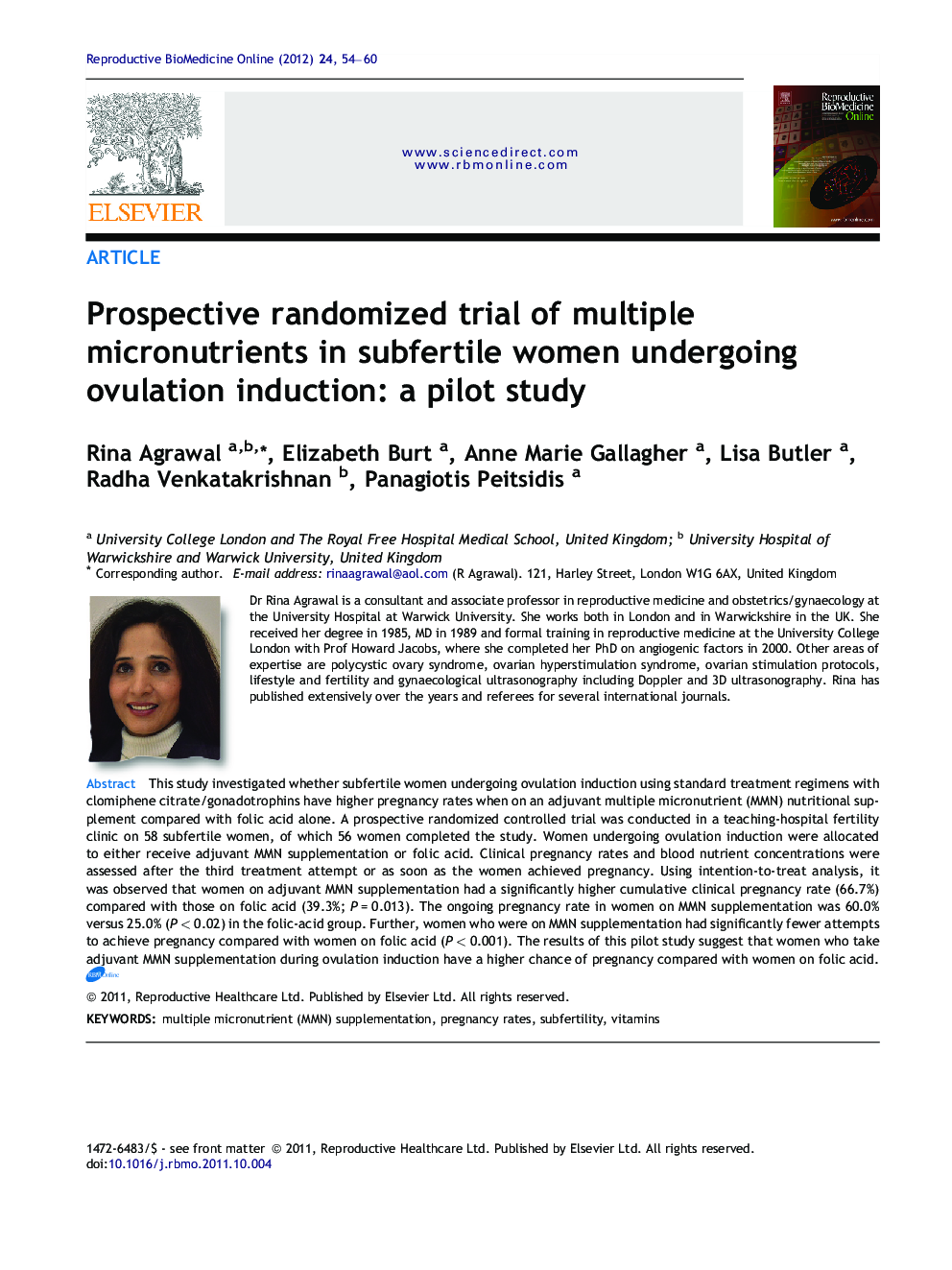| Article ID | Journal | Published Year | Pages | File Type |
|---|---|---|---|---|
| 3970622 | Reproductive BioMedicine Online | 2012 | 7 Pages |
This study investigated whether subfertile women undergoing ovulation induction using standard treatment regimens with clomiphene citrate/gonadotrophins have higher pregnancy rates when on an adjuvant multiple micronutrient (MMN) nutritional supplement compared with folic acid alone. A prospective randomized controlled trial was conducted in a teaching-hospital fertility clinic on 58 subfertile women, of which 56 women completed the study. Women undergoing ovulation induction were allocated to either receive adjuvant MMN supplementation or folic acid. Clinical pregnancy rates and blood nutrient concentrations were assessed after the third treatment attempt or as soon as the women achieved pregnancy. Using intention-to-treat analysis, it was observed that women on adjuvant MMN supplementation had a significantly higher cumulative clinical pregnancy rate (66.7%) compared with those on folic acid (39.3%; P = 0.013). The ongoing pregnancy rate in women on MMN supplementation was 60.0% versus 25.0% (P < 0.02) in the folic-acid group. Further, women who were on MMN supplementation had significantly fewer attempts to achieve pregnancy compared with women on folic acid (P < 0.001). The results of this pilot study suggest that women who take adjuvant MMN supplementation during ovulation induction have a higher chance of pregnancy compared with women on folic acid.Nutrition affects the biological processes in reproduction. Previously published studies give evidence that the use of micronutrients beneficially affects fertility, embryogenesis and placentation and that the prophylactic use of micronutrients may be useful in preventing several adverse pregnancy outcomes. As far as is known, our study is the first to demonstrate that multiple-micronutrient (MMN) supplementation as an adjuvant therapy to a standard ovulation induction regimen in women undergoing treatment for anovulatory or unexplained infertility improves pregnancy rates. The beneficial effects of the MMN supplements may have been mediated not only through the presence of multiple vitamins and minerals but through antioxidants such as vitamins C and E, N-acetylcysteine, insulin sensitization with inositol and improvement of blood flow in the pelvic organs with the presence of l-arginine. MMN supplementation is a cost-effective remedy that is well tolerated with no adverse effects. Its use as an adjuvant in fertility treatment may benefit women preconceptually. Women should therefore be made more aware of lifestyle changes and a healthy diet, which are essential not only during pregnancy but also preconceptually. Those women susceptible to micronutrient deficiencies should be supplemented by micronutrients to optimize their reproductive health. The implications of the study are potentially far reaching as they suggest MMN supplementation in women undergoing ovulation induction improve pregnancy rates. Larger studies are now required to confirm these preliminary findings.
